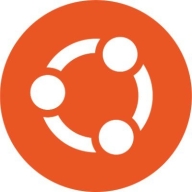

Ubuntu Linux and Flatcar Container Linux compete in the operating system category, with Ubuntu providing a more comprehensive OS solution for desktops and servers, while Flatcar is specialized for container environments. Ubuntu seems to have an upper hand in broader computing needs, but Flatcar offers advantages in container efficiency.
Features: Ubuntu Linux features extensive software repositories and strong support for a broad range of applications, making it suitable for diverse computing needs. It offers flexibility and has a large user base with ongoing updates. Flatcar Container Linux emphasizes security through automatic updates and a lightweight nature ideal for container-based workloads. It is optimized for containerized applications and provides a streamlined experience for cloud-native deployments.
Ease of Deployment and Customer Service: Ubuntu Linux provides a straightforward installation process with comprehensive community and professional support. It benefits from active community support, which facilitates easy troubleshooting. Flatcar Container Linux offers an efficient setup specifically tailored for container environments, which requires less maintenance post-deployment. It efficiently deploys in cloud-native applications, although it may have less extensive community support compared to Ubuntu.
Pricing and ROI: Ubuntu Linux typically has minimal upfront costs, offering various support options that may incur additional fees, contributing to significant ROI due to its versatility across workloads. Flatcar Container Linux may present lower initial costs when tailored for specific cloud-centric operations and potentially reduces resource consumption in high-scale environments, yielding savings and efficiency in container-focused use cases.
| Product | Market Share (%) |
|---|---|
| Ubuntu Linux | 9.0% |
| Flatcar Container Linux | 0.9% |
| Other | 90.1% |

| Company Size | Count |
|---|---|
| Small Business | 84 |
| Midsize Enterprise | 21 |
| Large Enterprise | 53 |
Ubuntu Linux is an open-source platform known for its robust security, ease of use, and rapid performance. Its lightweight design and comprehensive support system make it ideal for diverse IT environments, providing seamless management and scalability options.
Ubuntu Linux stands out with its open-source nature that allows extensive customization and access to a broad range of free software. It is widely praised for its stability and a vast package repository offering regular updates, enhancing its usefulness across different sectors. The platform is equipped with a lightweight design and excellent community support, making it scalable and easy to manage. While it could improve in areas like Windows software compatibility and user interface refinement, its benefits in enterprise management and development projects are undeniable. Improved documentation, better hardware integration, and enhanced third-party application compatibility are additional focal points to consider.
What are the key features of Ubuntu Linux?
What benefits should be considered from reviews?
Ubuntu Linux is prominently implemented in industries for tasks such as server management, application deployment, and software development. Its resource efficiency and open-source tool compatibility make it a favorite for programming, research, and cybersecurity. Companies frequently use it for web hosting, cloud services, and managing multi-user enterprise solutions.
We monitor all Operating Systems (OS) for Business reviews to prevent fraudulent reviews and keep review quality high. We do not post reviews by company employees or direct competitors. We validate each review for authenticity via cross-reference with LinkedIn, and personal follow-up with the reviewer when necessary.